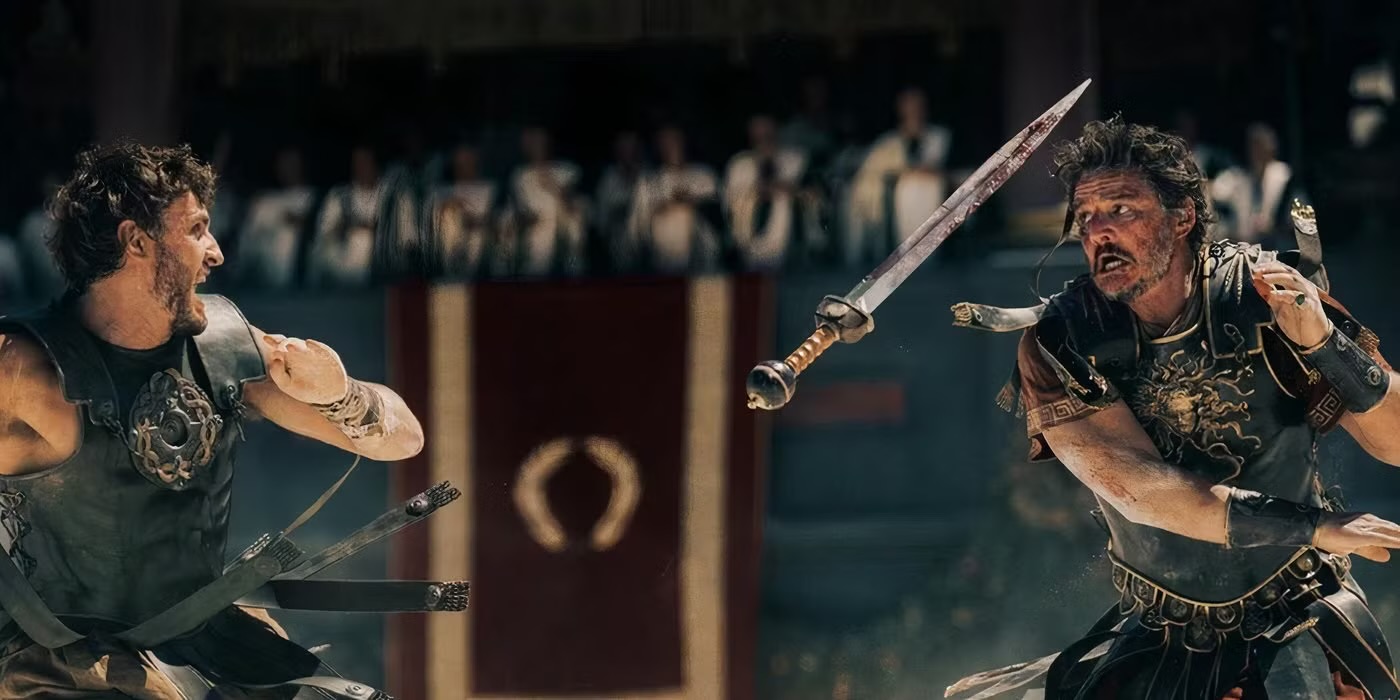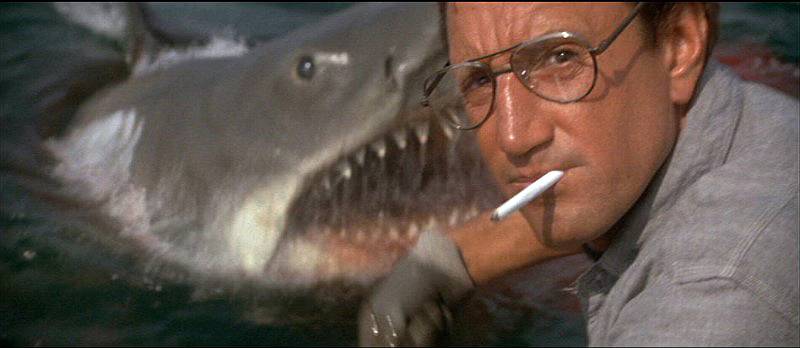Gladiator II

When director Ridley Scott gave us one of his very best films to date with Gladiator, he could not have anticipated that it would go on to win multiple Academy Awards, including Best Picture. Star Russell Crowe snagged a well-deserved Best Actor for his lead performance as Maximus, the exiled general-turned-slave-turned-gladiator. Twenty-four years later, the filmmaker returns to the Coliseum for more gory glory, but is it worth your time and money? Fans of the original (myself included) knew that it could never measure up to its predecessor, but as long as we get a compelling story and engaging characters, this sequel could still deliver an evening of entertainment.
Alas, Gladiator II is a very mixed bag. The biggest problem here is that it relies on the first film–especially its hero–as a crutch. I can only imagine that Scott was desperate for an original idea but decided to recycle as many familiar beats here as possible, with an overload of callbacks for good measure. If he had any sense, he would have his marketing team executed, as everything from the basic premise to the ad campaign (especially the trailers) give away information that could have worked successfully as Big Reveals. Even worse, when these “twists” come along, almost every one of them are treated as such, which is just a terrible idea. I will do my best to avoid spoilers, but I must give you the premise.
We have yet again another protagonist, Lucius Verus (Paul Mescal), who has been living in hiding under the name “Hanno” with his loving wife. But soon enough, he wants to avenge her death after she is killed in battle by Roman General Acacius (Pedro Pascal). He becomes a slave, then a gladiator who is forced into bloody combat in the Coliseum. Lucius quickly earns the favor of the sadistic slave trader Macrinus (Denzel Washington), who promises him both freedom if he keeps fighting, as well as the head of any man (guess who he chooses). Eventually, his mother (Connie Nielsen) discovers that he is her long-lost son, but things get complicated for him when it is revealed that her husband is none other than Acacius.
The script from David Scarpa (who also collaborated with Scott on Napoleon) contains few surprises, and is essentially a carbon copy of the first film. In fact, the director seems so committed to pleasing fans of the predecessor that he forgets to give it a broader appeal to those who are not devotees but still want to be entertained. In fact, much like a slave in shackles, so Gladiator II wants its hero to become Maximus 2.0 instead of allowing him to prove himself in battle and forge his own identity. This is the film’s biggest sin, considering that Mescal cannot carry this sequel. In fact, there is an excess of references to the original. We see flashbacks of Maximus and memorable scenes, Hans Zimmer’s iconic musical cues crowd so much of Harry Gregson-Williams’ score here that they leave little room for new themes, and the many, many famous mantras spoken by Crowe and Co. are repeated here but fall flat.
However, Scott’s sequel does have some merits. There is lackluster CGI in some scenes, most notably the first Coliseum fight against feral baboons. Thankfully, in other places it is more convincing. There is creativity in other battles, especially when the arena is filled with water and hungry sharks. Apparently, this is historically accurate, but can anyone explain to me how the sharks get in there? Washington steals the show and is clearly having the most fun. Nielsen still has some good stuff left in the tank when it comes to her performance. Joseph Quinn and Fred Hechinger play twin emperors Geta and Caracalla, respectively. Based on real historical figures, both come off as silly, even effeminate, but can turn on a dime to violent unpredictably. I never imagined that they were meant to remind us of Joaquin Phoenix’s superb performance as Emperor Commodus, which is good. While Quinn in particular has proven that he is capable of a wide range of acting with Stranger Things, A Quiet Place: Day One, and now this role, it’s impossible to understand what really makes him and Hechinger tick. Pascal is quite successful in doing what is required of him. Mescal is sadly the weakest here, especially because the film practically demands that he match Crowe’s gravitas.
But Scarpa’s script does not exactly offer us the same insight or emotional investment that is much needed here. By the time the credits rolled, I realized that I did not care about any of these characters, old and new. Even if they are played by seasoned veterans, the filmmakers basically gave us a shorter film that is hardly anything more than a carbon copy of a far superior one. The worst part is that when it has the opportunity, it chooses to remain in the shadow of its predecessor. It’s not a complete waste, but there were many other ideas for the movie pitched and eventually scrapped before settling on what we have now. One focused on Maximus fighting his way out of purgatory and back to this life, and that would have been far more interesting. You will probably be entertained again watching this, but it does come at a high price.
Rated R
2 hours, 28 minutes





Post Comment